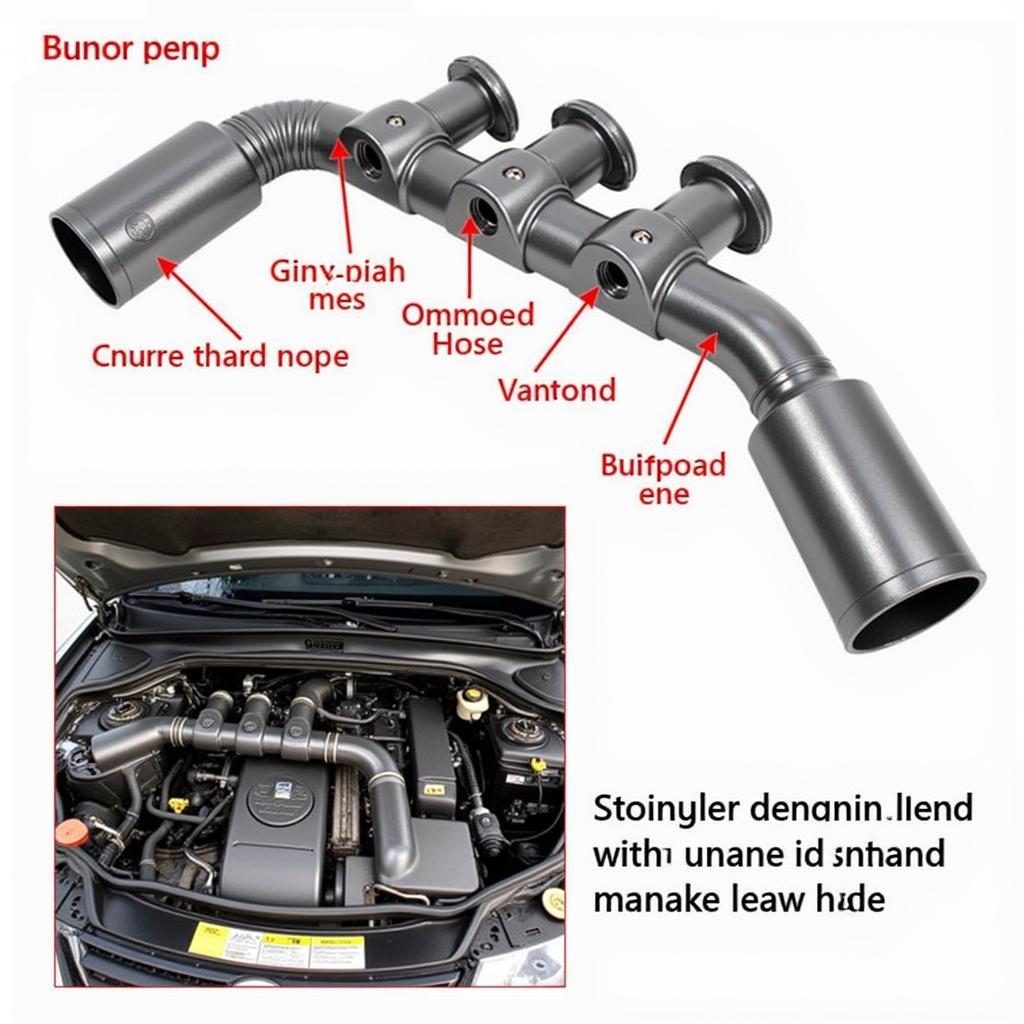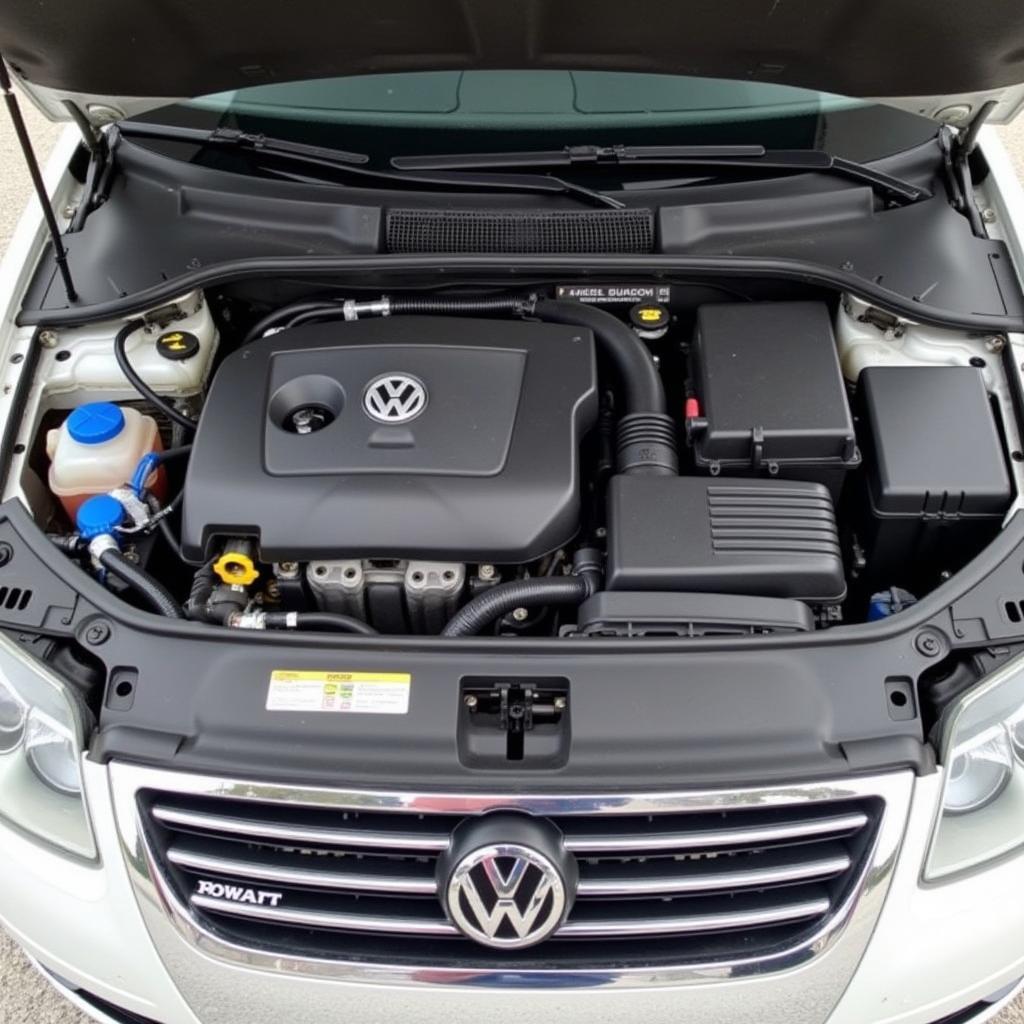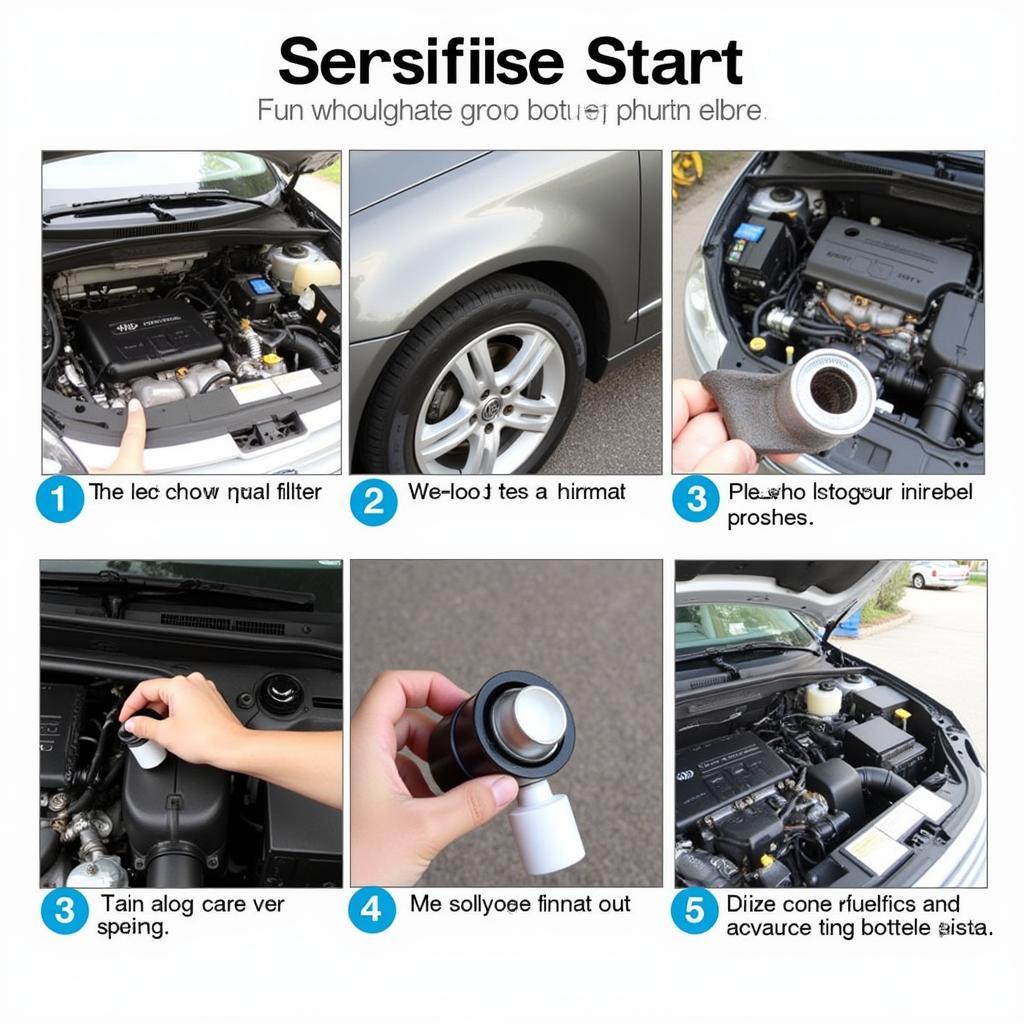Your cart is currently empty!

Understanding and Fixing the P0171 Code on a 2008 VW Passat 2.0T
The dreaded “Check Engine” light can induce panic in any car owner, especially when accompanied by a cryptic code like P0171. If you own a 2008 Volkswagen Passat 2.0T and this code pops up on your OBD-II scanner, it indicates a “System Too Lean (Bank 1)” issue. This article will guide you through the possible causes, diagnosis, and solutions for this common problem.
A “lean” condition means that the air-to-fuel ratio in your engine’s combustion chamber is off-balance, with too much air and not enough fuel. This can lead to reduced engine performance, poor fuel economy, and potentially damaging engine knocking.
Common Causes of P0171 on a 2008 VW Passat 2.0T
While several factors can contribute to a P0171 code, some common culprits are often found in 2008 VW Passat 2.0T models:
- Vacuum Leaks: One of the most frequent causes of a lean condition is a leak in the intake manifold or vacuum hoses. These leaks allow unmetered air to enter the engine, disrupting the air-fuel mixture.
 Vacuum Leak on VW Passat
Vacuum Leak on VW Passat
- Mass Air Flow (MAF) Sensor Issues: The MAF sensor measures the amount of air entering the engine. A dirty, faulty, or failing MAF sensor can send incorrect readings to the Engine Control Unit (ECU), leading to an incorrect air-fuel mixture.
 Mass Air Flow Sensor Location
Mass Air Flow Sensor Location
-
Oxygen (O2) Sensor Malfunction: The oxygen sensors monitor the exhaust gases to determine the air-fuel ratio. A faulty O2 sensor, especially the upstream sensor (Bank 1), can provide inaccurate readings to the ECU, causing it to miscalculate the fuel injection.
-
Fuel System Problems: Issues like a clogged fuel filter, a weak fuel pump, or malfunctioning fuel injectors can restrict the fuel flow to the engine, leading to a lean condition.
 Replacing a Fuel Filter
Replacing a Fuel Filter
- PCV System Issues: The Positive Crankcase Ventilation (PCV) system is responsible for recirculating blow-by gases back into the intake manifold. A malfunctioning PCV valve or clogged hoses can create a vacuum leak, causing a lean condition.
Diagnosing the P0171 Code
-
Visual Inspection: Begin by visually inspecting the vacuum hoses, intake manifold, and air intake system for cracks, loose connections, or obvious damage.
-
Check for Vacuum Leaks: You can use a carburetor cleaner spray or a smoke machine to detect vacuum leaks. With the engine running, carefully spray the cleaner around suspect areas. A change in engine idle speed indicates a leak.
-
Inspect the MAF Sensor: Remove the MAF sensor and inspect it for dirt or debris. Clean it with MAF sensor cleaner if necessary.
-
Test the O2 Sensors: Using an OBD-II scanner that can read live data, monitor the oxygen sensor readings. Fluctuating readings from the upstream sensor indicate it’s working. If the readings are stagnant or out of range, the sensor might be faulty.
-
Fuel Pressure Test: A fuel pressure gauge can be used to test the fuel pressure at the fuel rail. Low pressure could point to a fuel pump or filter issue.
Fixing the P0171 Code
-
Repair Vacuum Leaks: Replace any damaged or cracked vacuum hoses, and tighten any loose connections.
-
Clean or Replace the MAF Sensor: If cleaning the MAF sensor doesn’t resolve the issue, it might need to be replaced.
-
Replace Faulty O2 Sensor: If testing reveals a faulty oxygen sensor, replacing it is crucial for restoring the proper air-fuel ratio.
-
Address Fuel System Problems: Replace a clogged fuel filter, and if the fuel pump is weak, have it tested and replaced if needed. If you suspect faulty fuel injectors, they can be professionally cleaned or replaced.
-
Inspect and Repair PCV System: Check the PCV valve for proper operation and replace it if it’s stuck open or closed. Inspect the PCV hoses for cracks or blockages and replace them as needed.
Conclusion
Addressing a P0171 code on your 2008 VW Passat 2.0T is essential for restoring optimal engine performance and preventing potential damage. By following these diagnostic steps and implementing the necessary repairs, you can ensure your Passat runs smoothly and efficiently for miles to come. If you are uncomfortable performing these checks or repairs yourself, it is always advisable to consult with a qualified mechanic or VW specialist.
Need further assistance? Feel free to contact our team of automotive experts at VCDS Tool. We are available to answer your questions and provide guidance.
Phone: +1 (641) 206-8880 and our email address: vcdstool@gmail.com
Office: 6719 W 70th Ave, Arvada, CO 80003, USA
FAQ
1. Can I still drive my car with a P0171 code?
It’s best to address the P0171 code as soon as possible. While you may be able to drive short distances, prolonged driving with a lean condition can lead to engine damage.
2. How much does it cost to fix a P0171 code?
The repair cost depends on the underlying cause. Simple fixes like replacing a vacuum hose can be inexpensive, while replacing a MAF sensor or fuel pump can be more costly.
3. Can a bad gas cap cause a P0171 code?
While a loose or damaged gas cap can trigger other codes related to the evaporative emissions system, it is less likely to be the direct cause of a P0171 code.
4. Will clearing the code fix the problem?
Clearing the code might temporarily turn off the check engine light, but the underlying issue will remain and the code will likely return.
5. Can I fix a P0171 code myself?
If you have mechanical experience and the right tools, you can attempt some of the repairs yourself. However, it’s best to leave more complex diagnostics and repairs to qualified professionals.
by
Tags:
Leave a Reply